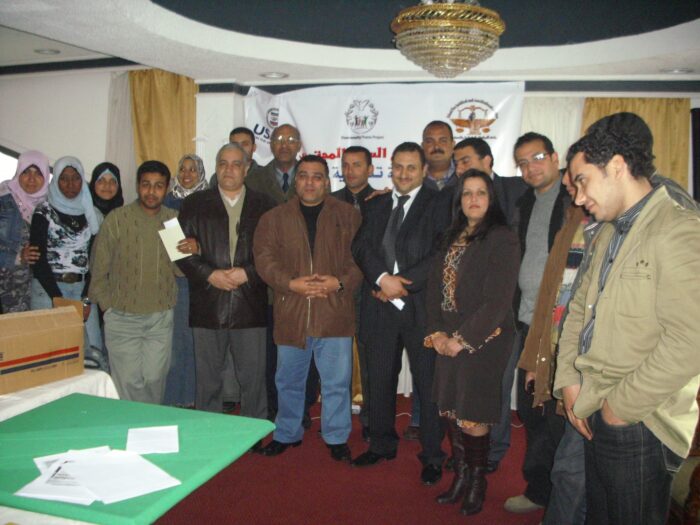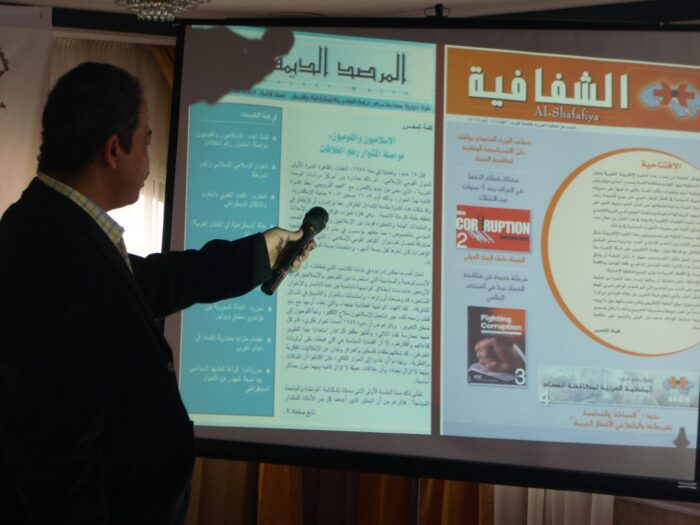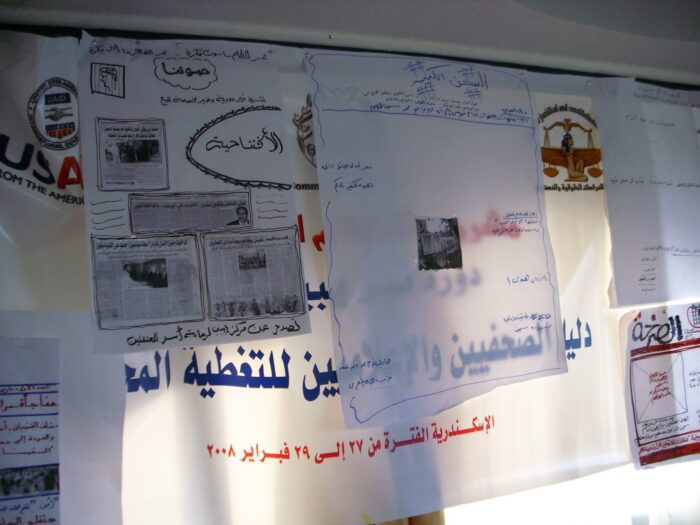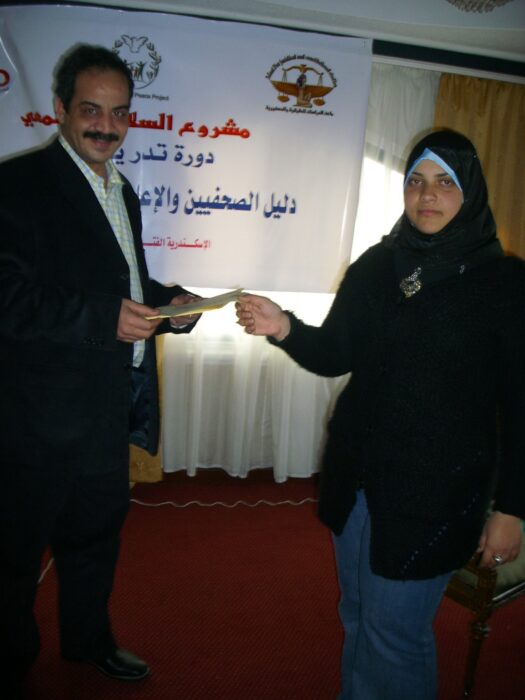28 journalists in 6 governorates form a media "lobby" to defend human rights issues
On Friday evening, February 29, the Maat Center completed training 28 journalists from various national, party, private and regional newspapers in 6 governorates: Cairo, Giza, Dakahlia, Alexandria, Minya and Assiut, on methods of impartial media coverage of the issues of prisoners, detainees and their families, as part of its project aimed at spreading the culture of community peace and restoring Integrating the families of prisoners and detainees into society, erasing the reasons for their isolation, and excluding the causes of the spread of violence among them.
Ayman Aqil, Director of the Center, said that the role of the media in impartial coverage of the issues of prisoners and detainees will not increase without good preparation for those concerned with human rights issues, and the organization of serious and sufficient sessions to familiarize them with these issues with training on media handling of them in light of international conventions, agreements and global declarations in support of the rights of marginalized groups. Aqeel emphasized the success of the experience of training human rights editors on the possibility of forming a press "lobby" to defend the issues of these families within the media system and distinguish them between the pages of their newspapers. He also announced the Center's readiness to adopt the efforts of the trained journalists to issue a non-periodic human rights newsletter entitled "The Scream", concerned with highlighting the issues of prisoners' families. And the detainees, an idea that was called by the attendees of the trainees.
Dr. Essam Abdullah, Professor of Philosophy at Ain Shams University, said during the training workshop that 37 % of prisoners and detainees came out of slums that threaten society with high rates of crime if their development is neglected, and he also rejected the blockade of human rights and media work with more laws, calling for more impartiality at the same time. Media in dealing with human rights issues and not being politically exploited, which is the opinion supported by Dr. Sami al-Sharif, a professor of media at Cairo University, when he called for more transparency and seriousness in regimes dealing with issues of freedoms in the Arab world, with the need for media professionals and broadcasters to deal seriously with these issues, as the professor called Magdy Helmy, deputy editor-in-chief of Al-Wafd newspaper, journalists attend with more media pressure in favor of the issues of the families of prisoners and detainees and highlight the role of the written media in rehabilitating them within society and rejecting violence among them in order to achieve the idea of community peace.
At the end of the session, the attendees recommended the formation of a media-human rights coalition to support the issues of the families of prisoners and detainees, and the influence of the members of this coalition of human rights editors within their newspapers, regardless of the positions and policies of editing their councils. They also recommended adopting the issues of marginalized families without media discrimination to others, with the need to create dialogue by organizations. Human rights activists support the families of detainees and prisoners, and the editorial departments of newspapers that support these groups, about the importance of organizing repeated campaigns that talk about these issues, and they called for the launch of the first Arab “human rights” channel that talks about the issues of marginalized groups and victims of detention and violations. They also stressed the need for a human rights bulletin dealing with issues of families. Prisoners and detainees, which supported stability by calling it “the cry”, also called for the Egyptian businessmen to adopt the idea of establishing a national fund to support civil society activity, and another to support and rehabilitate the families of prisoners and detainees, especially those who were released and those in need of a job opportunity.
shortlink: https://maatpeace.org/en/?p=32913

















